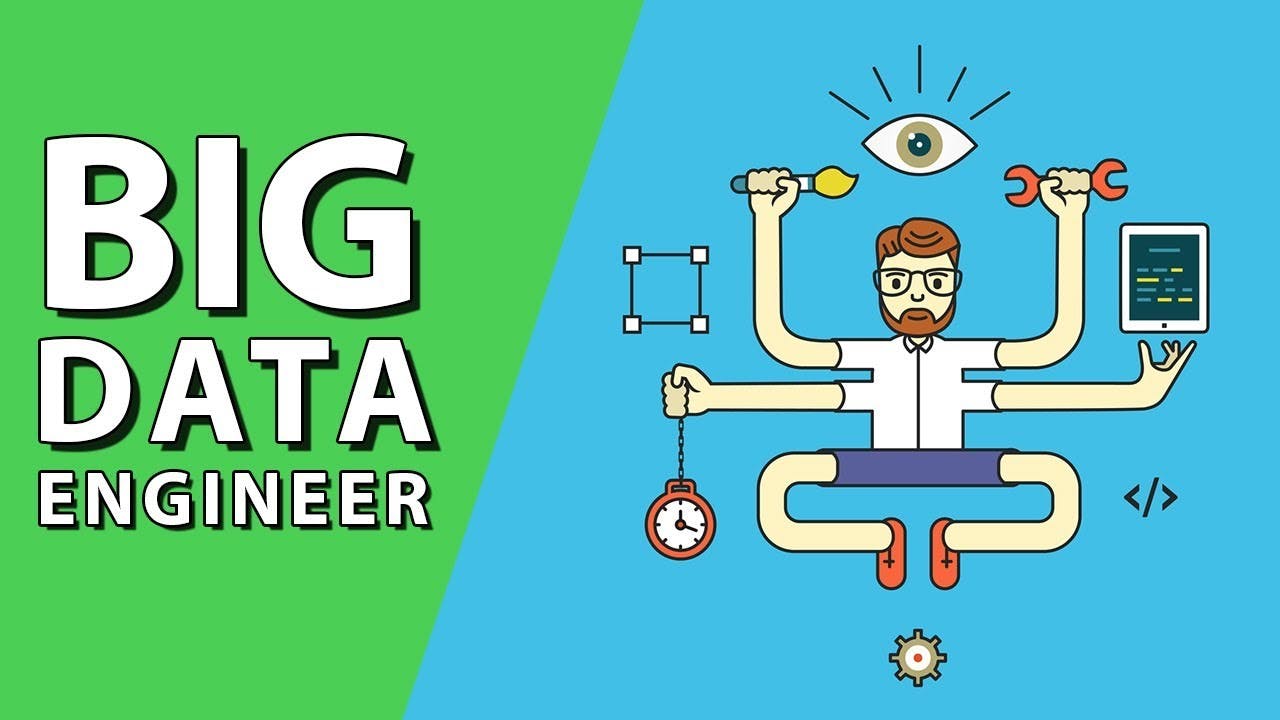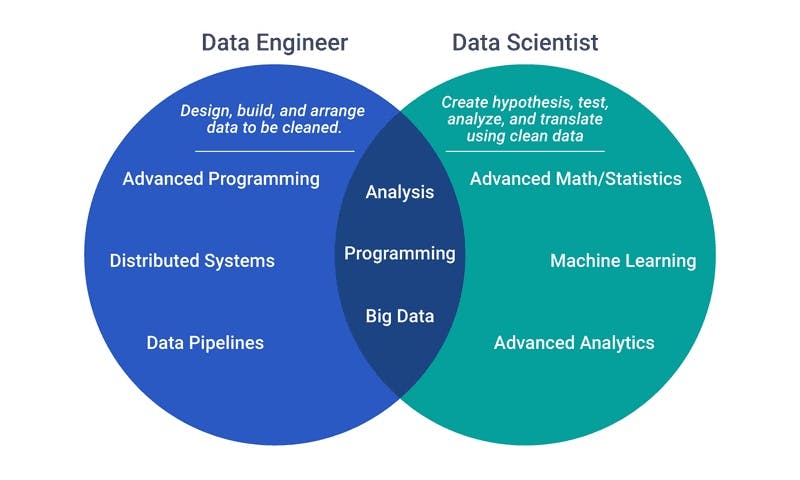How to become a BIG DATA Engineer?
This is a complete guide that will help you in getting started.
#1. What does a data engineer do?
Data engineers work in various settings to build systems that collect, manage, and convert raw data into usable information for data scientists and business analysis.
These are some common tasks you might perform when working with data:
- Acquire datasets that align with business needs.
- Develop algorithms to transform data into useful, actionable information.
- Build test and maintain database pipeline architecture.
- Collaborate with management to understand company objectives.

#2. DATA ENGINEER vs DATA SCIENTIST

#3. Why pursue a career in Data Engineering?
A career in this field can be rewarding and challenging.
Providing easier access to data that data scientists, analysts, and decision-makers need to do their jobs.
As long as there is data to process, data engineers will be in demand.
LinkedIn listed it as one of its jobs on the rise in 2021.
Data Engineering is also a well-paying career. The average salary in the US is $111,933.
Many data engineers start as software engineers or business intelligence analysts.
#4. Skills Required to become a DATA ENGINEER
Coding:
- Proficiency in coding language is essential to this role. Common programming languages include SQL, NoSQL, Python, Java, R, and Scala.
Relational and non-relational databases:
- You should be familiar with both and how they work.
ETL:
- ETL is the process by which you'll move data from databases and other sources into a single repository, like a data warehouse.
Data Storage:
- Not all types of data should be stored the same way, especially when it comes to big data.
Automation and Scripting:
- It is a necessary part of working with big data simply because organizations are able to collect so much information.
Machine Learning:
- It can be helpful to have a grasp of the basic concepts to better understand the needs of data scientists on your team.
Big Data Tools:
- Data engineers don't just work with regular data. They're often tasked with managing big data. Some popular ones include Hadoop, MongoDB, and Kafka.
Cloud Computing:
- You'll need to understand cloud storage and cloud computing as companies increasingly trade physical servers for cloud services.
Data Security:
- Many data engineers are still tasked with securely managing and storing data to protect it from loss or theft.
#5. Get Certified
A certification can validate your skills to potential employers, and preparing for a certification exam is an excellent way to develop your skills and knowledge.
Options include the Associate Big Data Engineer, Cloudera Certified Professional Data Engineer, IBM Certified Data Engineer, or Google Cloud Certified Professional Data Engineer.
#6. Next Steps
- Whether you're just getting started or looking to pivot to a new career. Start building job-ready skills for roles in data with Google Data Analytics, IBM Data Science, or IBM Data Engineering Professional Certificates.